
What is a plant-based diet and why should you try it?
These days, conversation around food or even building a healthier lifestyle often include buzzwords like ‘plant-based’ and ‘vegan’. So why are so many of us suddenly talking about a plant-based lifestyle?
The action at the heart of a vegan lifestyle is to drop any product or thing we might use which has been derived from an animal. But why?
This blog post will cover the three top reasons why people adopt a plant-based diet, and why you should, too!
Do It For Your Health

Dairy has received a fair amount of attention for its role in a balanced diet. It is nutrient-dense and packs a lot of the macronutrients we look for in food. In nations where people struggle to get their daily nutrition, dairy can be a good way to fight malnutrition. This is why, globally, governments have pushed for mass consumption of dairy (including India’s own dairy movement, ‘Operation Flood’).
However, with the adaptation and rise of plant-based dairy, we’re moving into an era where we can get all our nutrition without the need of a middle-cow. Plant-based mylk, like soy mylk and fortified varieties of mylk make it possible to go completely plant-based without losing out on too much of the nutrition provided by dairy milk.
Meat (especially red meat) can have serious negative effects on our health. A diet composed of largely red meat has been associated with a higher risk of diabetes, strokes, and colorectal cancer.
Additionally, there is a high risk of disease associated with processed meats such as sausages and salamis. All of these complications have prompted people to adopt a diet and lifestyle that involves no meat consumption at all.
The only nutrient that might be missing from a plant-based diet, vitamin B12, can be easily derived from vegan supplements. Check out our other blog post Why You Should Supplement With B12 to learn more.
It’s The Most Sustainable Way To Live

Increasing evidence shows that nutrition derived from animals in the form of meat and dairy is unsustainable. According to a 2020 report from IDTechEx, animal agriculture uses about 77% of the world’s agricultural land while producing only 17% of global caloric consumption. That’s a very inefficient way to feed the world’s population, even though the appetite for meat is skyrocketing globally.
The Food and Agriculture Organization of the United Nations also found that, globally, emissions from animal agriculture (including meat and dairy) amount to 7.1 gigatonnes of Co2. That represents 14.5% of all greenhouse gas emissions.This is not a welcome figure with sea levels rising and climate change ramping up due to global warming.
Animal Have Rights

A timeless concern about using animals for our nutrition has been the ethics surrounding it. The fundamental question to ask yourself is: Do we have the right to kill a sentient being who is like our cat or dog?
A halfway point in the negotiation of these ethics involves food labels like ‘organic’ and ‘free-range’ to ignore the question of slaughter and demand that animals we use have good lives before they’re killed. Whatever your stance is, the fact remains that globally, even under regulation, animals live under very poor conditions.
As India and other Asian countries increase their meat consumption, factory farms will begin to take over family farms to meet demand. And they already are.
In order to lower the cost of meat and dairy products, animals will live out their lives in unhygienic industrial complexes where animals are born and killed. The vast majority of these animals will never see or feel sunlight. As you can imagine, these are extremely stressful conditions that breed infectious diseases. To prevent them from spreading to humans, animals are injected or fed antibiotics to stave off any pandemics waiting to happen.
The byproduct dairy also involves violence of a similar kind. Dairy milk, just like the production of milk in humans, occurs after pregnancy. It is the mother’s body’s natural mechanism to nourish her young. To ensure that a steady supply of milk is available all year round, cows are made pregnant via artificial insemination. Once she reaches the peak of milk production, she is slaughtered for beef that will likely be exported due to the lack of demand for beef in India.
Still Not Convinced?
Taken separately, each of these reasons may be unlikely to move a hardcore animal-eater. However, together, they have created a movement composed of vegans, vegetarians, and flexitarians who rely on a largely plant-based diet for their nutrition. This is how it begins.
And with more companies providing vegan alternatives to meat, dairy, and nutrition, you may not have to agree with any of this to enjoy a delicious meal.

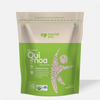
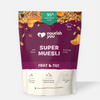
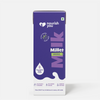
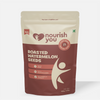
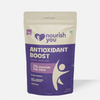
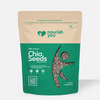
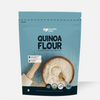

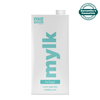
Leave a comment